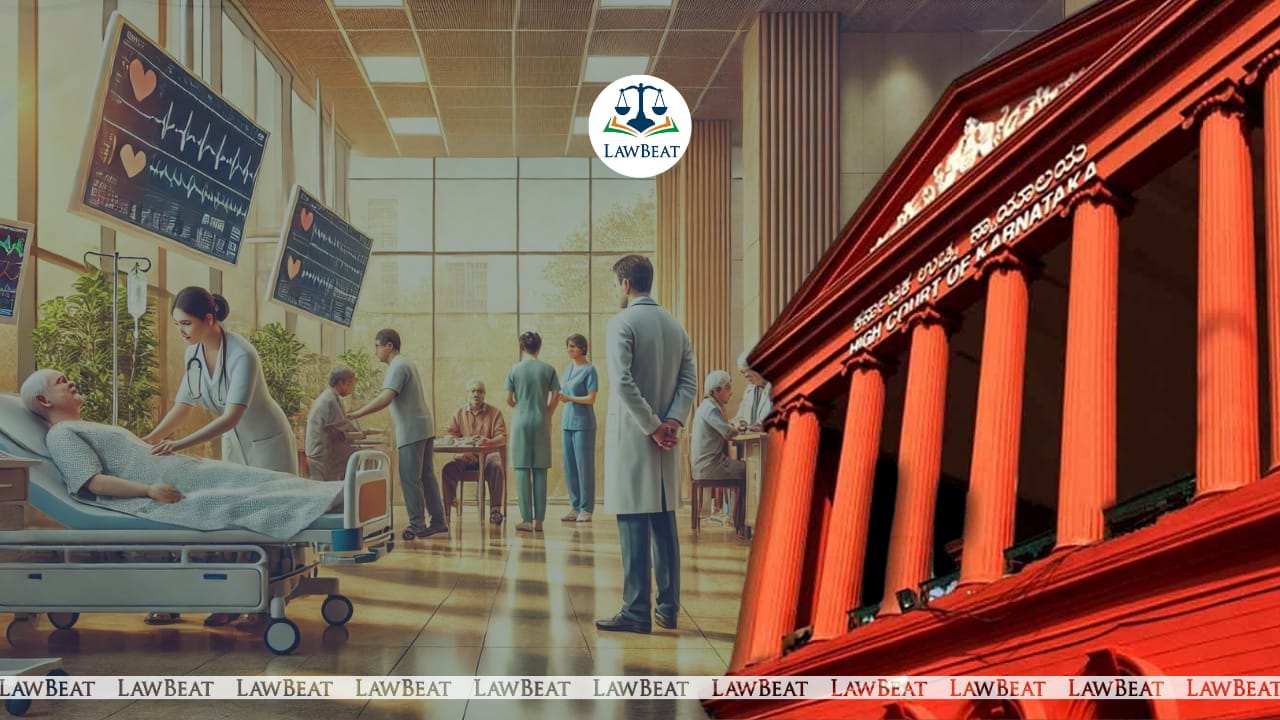'Right to Health a Fundamental Right': Karnataka HC Stresses State's Obligation to Create Medical Facilities

The PIL arose from concerns over inadequate healthcare resources and infrastructure, especially in rural Karnataka
The Karnataka High Court, emphasising the state’s constitutional obligation to ensure adequate medical facilities, directed the State Department of Health and Family Welfare to establish a three-member committee, headed by its Secretary, to oversee and implement mechanisms aimed at strengthening medical infrastructure and personnel at all levels, including urban, district, and rural areas.
The division bench, comprising the Chief Justice N.V. Anjaria and Justice K.V. Aravind, issued this directive while disposing of a suo motu public interest litigation (PIL) initiated based on a report in The New Indian Express. The report cited a deficit of 16,500 medical personnel, including 723 vacancies for MBBS doctors, 7,492 for nurses, and substantial shortfalls among lab technicians and pharmacists. It was highlighted that this deficit particularly affected rural inhabitants who often had to travel long distances for basic health services.
Taking cognizance of the report, the court noted: “When right to health and right to medical-care is treated as fundamental right, it stands enforced only with corresponding Constitutional obligation on part of the State to create medical facilities. For effective enjoyment of this right, the creation of medical cadre, adequate medical personnel, setting up of infrastructure, availability of medicines in sufficient quantity and without interruption, as also establishment of Primary Health Centres in the rural area, are the concomitants. They become inseparable necessities for enjoyment of right to health and right to medicare. At all levels from urban to semi-urban to rural areas of the State, the medical facility, medical infrastructure and medical personnel have to be made available by the welfare state.”
The State government, in its affidavit, outlined the steps it has taken to address staffing shortages and enhance the availability of medical facilities. The state argued that though multiple health departments are facing staffing shortages, recruitment efforts are underway, with some posts being filled through government contracts and the National Health Mission. In terms of financial support, the government ensured adequate budget allocations for health services and active implementation of national schemes such as Ayushman Bharat.
Citing judgments by the Supreme Court in State of Punjab and others vs. Mohinder Singh Chawla (1997), State of Punjab and others vs. Ram Lubhaya Bagga (1998), Parmanand Katara vs. Union of India and others (1989), and Paschim Banga Keth Mazdoor Samity and others vs. State of West Bengal (1996), the court highlighted that “…it is the constitutional obligation of the State to provide adequate medical services to the people. Whatever is necessary for this purpose has to be done… In the matter of allocation of funds for medical services the said constitutional obligation of the State has to be kept in view. It is necessary that a time-bound plan for providing these services should be chalked out…”
Underscoring the welfare state philosophy embedded in the Constitution, the court further stated, “It is expected that the respondent State Government and the Department of Health and Family Welfare remains attentive and active in catering to the needs of the medical facilities in the State and especially in the rural areas to ensure that- medical infrastructure is widely available and the medical facilities as well as medical treatment reach the door steps of the rural inhabitants. Extending continuous by the medical facilities and medical treatment by creating and setting up necessary infrastructure in that regard spread over the State in the cities, towns and rural areas, becomes a primary responsibility and a constitutional obligation of a Welfare State. The medical facility and its effective availability have also to be continuously monitored.”
The court concluded the PIL by issuing several directions to improve the state's healthcare system, including:
- A three-member committee, led by the Secretary of the Department of Health and Family Welfare, to oversee medical facilities at all levels.
- District committees, headed by Collectors/Deputy Commissioners, to gather data on vacancies and infrastructure needs, submitting it to the main committee every six months.
- The state must ensure proper coordination of both state and national health schemes and make adequate budget allocations.
- The state must provide a timeline for filling vacancies, with a continuous recruitment process reviewed every six months.
- The state is required to submit an affidavit within ten weeks outlining recruitment progress and steps taken.
Cause Title: The Registrar General, High Court of Karnataka AND Union of India & Others [WP No.797 OF 2024 (GM-RES-PIL)]
Appearance: Advocate Shridhar Prabhu as Amicus Curiae, Advocate B. Vachan for Petitioner. Advocate Vidya Pail for Advocate Nayana Tara B G, for R-1. AGA Niloufer Akbar for R-2.
